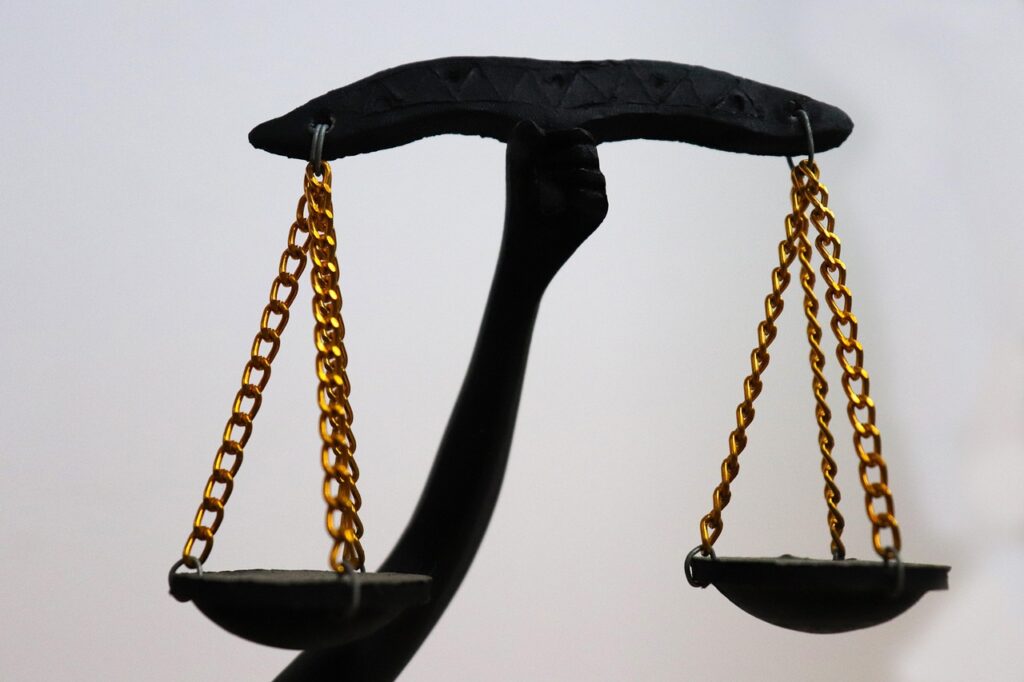Published On: August 19th 2025
Authored By: Preesha Kapoor
NMIMS MUMBAI, KPMSOL
INTRODUCTION
In the case of Harminder Kaur vs Harmander singh[1], Delhi high court ruled that the constitution cannot intervene in the household problems like MARITAL RAPE since it would affect the institution of marriage. What institution of marriage are we talking about? The one that is supposed to make a woman feel safe and secure? Or where women have to adjust to the continuing legacy of patriarchy? It is not law but it is the accountability which plays a major role in strengthening this very institution of partnership.
MARITAL RAPE: A LEGAL BLINDSPOT
The judiciary exists to listen to the victims and protect their rights so how can the court say that it cannot intervene? Every citizen has the basic right to legal protection from violence be it domestic violence, murder, theft, then why hold back marital rape simply because of marriage. Marital rape is referred to as the sexual intercourse between a married couple where the wife’s consent is invisible in the eyes of law. Marital rape is a clear definition of rape but acts as a license to violate a woman’s body and shields the husband with the excuse of preserving the marriage. Should this type of marriage be preserved which costs a woman her dignity? This ignorance result in the violation of fundamental rights such as, article 14 (right to equality), 15 (prohibition of discrimination), 21(right to life and personal liberty). Marital rape is a hidden public health crises and when public health is harmed by individual violence, it is the state’s duty to act against it. This act of violence is no less than a silent epidemic. According to the Protection of Women from Domestic Violence Act, 2005 [2] definition of domestic violence states that “harms or injures or endangers the health, safety, life, limb or well-being, whether mental or physical, of the aggrieved person or tends to do so and includes causing physical abuse, sexual abuse, verbal and emotional abuse and economic abuse”, This clearly shows that sexual abuse, even in marriage is recognised as a form of domestic violence if it endangers the women’s health or safety. The court says sexual intercourse is the conjugal right of a spouse, which means her rights like right to equality, prohibition of discrimination, right to life and personal liberty, freedom of expression and many more of these hold no value in front of a man’s pleasure. This injustice makes married population of women a less of a citizen to the country than men because she is denied protection from the state which is said to be her basic right. India is a signatory to CEDAW[3] (Convention on the Elimination of All Forms of Discrimination Against Women) but its actions would suggest the contrary. This convention includes protection from all forms of violence including sexual violence, but here remains a glaring legal vaccum. The failure to criminalize this offence is denial of humanity, betrayal to justice and barrier to genuine gender equality. Consent should be recognized as a non- negotiable pillar of every marital relationship. A marriage that ignores consent cannot claim to uphold equality and sanctity. This also shows that the legality of a sexual act hinges more on the marital status of the perpetrator than on the consent of the victim. This right also makes us question if the court value tradition over fundamental rights. Marital rape is not just a private problem just because it happens under the name of marriage, it impacts public health, national productivity and justice system trust. In Mahabharata during Draupadi’s disrobing, she questioned her being treated like a man’s property but the elders remain silent. This silence of ours, is the society turning away from injustice under the weight of tradition, pride and male dominance. This scene shows us how women’s dignity and respect is sacrificed to uphold a “system” which does not even go with the core values of the constitution. Criminal law follows the individuals rather than the relationships. Dr. B.R Ambedkar shared his view that how political democracy is meaningless without social as well as legal equality. India is known for its increasing rates of atrocities against women and being very much silent is nothing but in support of the hypocritic democracy which is portrayed by them. The very logic of excluding rape from criminal scrutiny in marriage is outdated and constitutionally absurd which would also affect the child’s psychology and make him normalise such behaviour. Marital rape does not weaken the law but destroys family which traps women in violent homes with irreversible physical and mental damage. No legal agreement is made without the possibility of withdrawal so why is the human body treated with less legal sanctity?
India is well known as the world’s largest democracy what takes bold steps to address gender based violence however continued refusal to criminalise this aggressive act undermines this very framework. Judiciary is supposed to hold all relationships accountable including marriage because India stands nearly alone among democratic nations in refusing to criminalisation of marital rape which can also be called coerced sexual labour. Many NGOs and human right activists are fighting a legal battle against this unreported and violent act which leaves a permanent scar in the victim’s mind. The repetition of this situation haunts her for the rest of her life. So, not protecting wives from any injustice in the name of “marital relationship” or “destroying the marriage” will only turn women against this institution because why would she prefer to go through all the injustice just to be denied her right to bodily autonomy. Arranged marriage is a prevalent norm in India, it is not a surprise for a woman to marry a man she doesn’t even know, let alone trusts. If a woman is expected to build a family with a stranger, how can the law justify granting the stranger unrestricted sexual access to her body, regardless of her will and comfort? Consent of women holds value when it comes to the topic of surrogacy and abortion contracts then why exempt sex in a marriage? Citizens surrender some of their rights to the state, trusting it, to protect their interest, this is called a social contract, but for what? The victims of this crime are left defenceless.
CONCLUSION
India is known to pray and celebrate goddesses but silence the daughters. India is known to criminalise rape but exempt it from one place where it is most likely to occur: marital home. Not criminalising this would fuel men’s entitlement culture from within the marriage. Many countries recognise the crime of marital rape like Liechtenstein, Mongolia and Rwanda with the punishment upto life imprisonment[4] based on the situation. Research by UN shows that 4 out of 10 countries criminalise marital rape[5] because some of the countries avoid the prosecution of the rapist by making the victim marry their rapist which is again inhuman, therefore UN urges other countries to fill up the legal loopholes and recognise this crime and protect the women of their nation to make them comfortable and secure in their own homes and to question whether Indian law believes that ‘no’ means ‘no’. It is very much convenient for us to look at countries like Afghanistan and feel superior but beneath our constitutional promises and policies to uplift the condition of women, we know the true story- but are we really better? Or just hiding the faces we don’t want others to see. we continue to defend laws that exempt marital rape from punishment. This isn’t just legal negligence, it’s a structural betrayal of the very women we claim to protect. Not criminalising marital rape doesn’t just protect rapists but it also protects a system who refuse to recognise women as full human beings. Criminalising marital rape is not just an argument for women but also for the future generation and the child’s psychology, who would have to witness such violence. Most law students are taught about rape as abstract and marriage as sacred, but never the conflict between the two. We have established laws against evils like Sati, human traffic, widow remarriage because these acts were not only violent but inhumane so why exclude marital rape? The country has to evolve with the requirements of the people and this is a very essential need for the society for the empowerment and protection of women. Law cannot claim legitimacy while one part of the population is not protected simply because they wear sindoor. Criminalising marital rape would not destroy families but it will protect them. The law cannot make women suffer for being a wife nor can it reward a man for ignoring her will. Hannah Arendt has well said “ the right to have rights should be recognized as a precondition for the protection of every human right” and I stand by it[6].
REFERENCES
[1] Manju Sharma v. Vipin Sharma MANU/DE/0234/1983 (Del HC)
[2] Protection of Women from Domestic Violence Act 2005
[3] Convention on the Elimination of All Forms of Discrimination Against Women (adopted 18 December 1979, entered into force 3 September 1981) UNGA Res 34/180
[4]We The Peoples, ‘Eight Countries That Are Making Historic Changes to Ensure No Woman or Girl Is Left Behind’ (We The Peoples, 24 November 2017) https://medium.com/we-the-peoples/eight-countries-that-are-making-historic-changes-to-ensure-no-woman-or-girl-is-left-behind-dc753920549f accessed 10 July 2025.
[5] UN Urges Countries to End Marital Rape and Close Legal Loopholes, UNITED NATIONS (n.d.).
[6] Leila Faghfouri Azar, Hannah Arendt: The Right to Have Rights, CRITICAL LEGAL THINKING (July 12, 2019), https://criticallegalthinking.com/2019/07/12/hannah-arendt-right-to-have-rights/.


